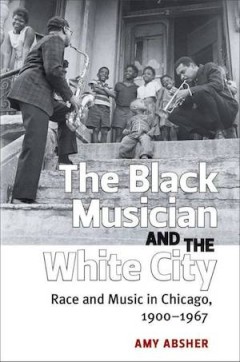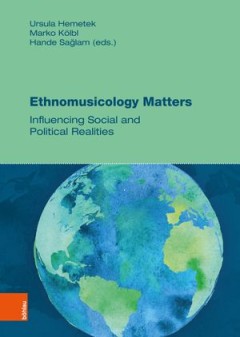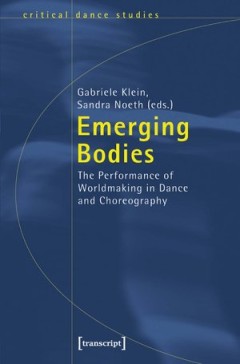Filter by

Music beyond Airports
This collection of essays has been assembled and developed from papers given at the Ambient@40 International Conference held in February 2018 at the University of Huddersfield. The original premise of the conference was not merely to celebrate Eno’s work and the landmark release of Music for Airports in 1978, but to consider the development of the genre, how it has permeated our wider musical…
- Edition
- -
- ISBN/ISSN
- 9781862181618
- Collation
- -
- Series Title
- -
- Call Number
- 780

Tellings and Texts: Music, Literature and Performance in North India
Examining materials from early modern and contemporary North India and Pakistan, Tellings and Textsbrings together seventeen first-rate papers on the relations between written and oral texts, their performance, and the musical traditions these performances have entailed. The contributions from some of the best scholars in the field cover a wide range of literary genres and social and cultural c…
- Edition
- -
- ISBN/ISSN
- 9781783741045
- Collation
- -
- Series Title
- -
- Call Number
- 780

The Sword of Judith: Judith Studies Across the Disciplines
The Sword of Judith is the first multidisciplinary collection of essays to discuss representations of Judith throughout the centuries. Bringing together scholars from around the world, it transforms our understanding of Judith’s enduring story across a wide range of disciplines. The book includes sections on Judith in Christian, Jewish and secular textual traditions, as well as representation…
- Edition
- -
- ISBN/ISSN
- 9781906924171
- Collation
- -
- Series Title
- -
- Call Number
- 780

A Musicology of Performance: Theory and Method on Bach’s Solos for Violin
This book examines the nature of musical performance. In it, Dorottya Fabian explores the contributions and limitations of some of these approaches to performance, be they theoretical, cultural, historical, perceptual, or analytical. Through a detailed investigation of recent recordings of J. S. Bach’s Six Sonatas and Partitas for Solo Violin, she demonstrates that music performance functions…
- Edition
- -
- ISBN/ISSN
- 9781783741540
- Collation
- -
- Series Title
- -
- Call Number
- 780

American Stravinsky: The Style and Aesthetics of Copland's New American Music…
One of the country's most enduringly successful composers, Aaron Copland created a distinctively American style and aesthetic in works for a diversity of genres and mediums, including ballet, opera, and film. Also active as a critic, mentor, advocate, and concert organizer, he played a decisive role in the growth of serious music in the Americas in the twentieth century. In The American Stravin…
- Edition
- -
- ISBN/ISSN
- 9780472099849
- Collation
- -
- Series Title
- -
- Call Number
- 780

Black Musician and the White City: Race and Music in Chicago, 1900-1967
Amy Absher's The Black Musician and the White City tells the story of African American musicians in Chicago during the mid-twentieth century. While depicting the segregated city before World War II, Absher traces the migration of black musicians, both men and women and both classical and vernacular performers, from the American South to Chicago during the 1930s to 1950s. Absher takes the histor…
- Edition
- -
- ISBN/ISSN
- 9780472119172
- Collation
- -
- Series Title
- -
- Call Number
- 780

The Anglo-Scottish Ballad and Its Imaginary Contexts
This is the first book to combine contemporary debates in ballad studies with the insights of modern textual scholarship. Just like canonical literature and music, the ballad should not be seen as a uniquely authentic item inextricably tied to a documented source, but rather as an unstable structure subject to the vagaries of production, reception, and editing. Among the matters addressed are t…
- Edition
- -
- ISBN/ISSN
- 9781783740291
- Collation
- -
- Series Title
- -
- Call Number
- 780

Simone Verovio: Music printing, intabulations and basso continuo in Rome arou…
Simone Verovio was the first printer to produce a substantial number of musical prints using engraved copper plates. This intaglio printing technique not only allowed him to print on demand, but also to combine different kinds of notation on one page opening: voice parts with corresponding harpsichord and lute intabulations. This detailed comparison of intaglio and relief printing techniques in…
- Edition
- -
- ISBN/ISSN
- 9783205207184
- Collation
- -
- Series Title
- -
- Call Number
- 780

Ethnomusicology Matters: Influencing Social and Political Realities
This book gathers international voices from the field of ethnomusicology discussing the socio-political relevance of the discipline. The articles draw from contemporary discourses that take into account the role of music and dance in shaping social and political realities. An important field connected to political relevance is heritage, either in connection with the UNESCO or with archives. Ont…
- Edition
- -
- ISBN/ISSN
- 9783205232872
- Collation
- -
- Series Title
- -
- Call Number
- 780

Emerging Bodies: The Performance of Worldmaking in Dance and Choreography
The concept of 'worldmaking' is based on the idea that 'the world' is not given, but rather produced through language, actions, ideas and perception. This collection of essays takes a closer look at various hybrid and disparate worlds related to dance and choreography. Coming from a broad range of different backgrounds and disciplines, the authors inquire into the ways of producing 'dance world…
- Edition
- -
- ISBN/ISSN
- 9783837615968
- Collation
- -
- Series Title
- -
- Call Number
- 780
 Computer Science, Information & General Works
Computer Science, Information & General Works  Philosophy & Psychology
Philosophy & Psychology  Religion
Religion  Social Sciences
Social Sciences  Language
Language  Pure Science
Pure Science  Applied Sciences
Applied Sciences  Art & Recreation
Art & Recreation  Literature
Literature  History & Geography
History & Geography